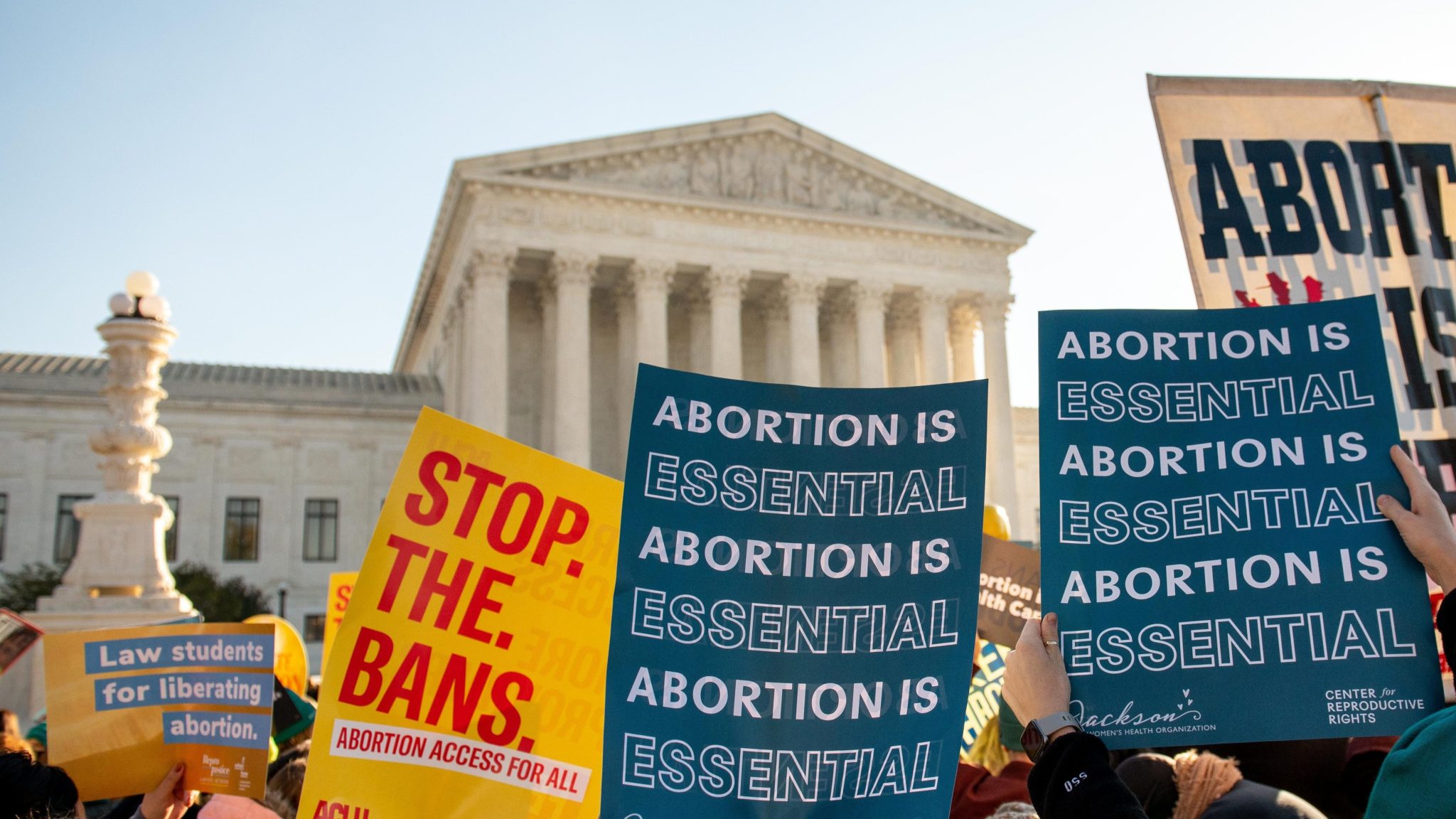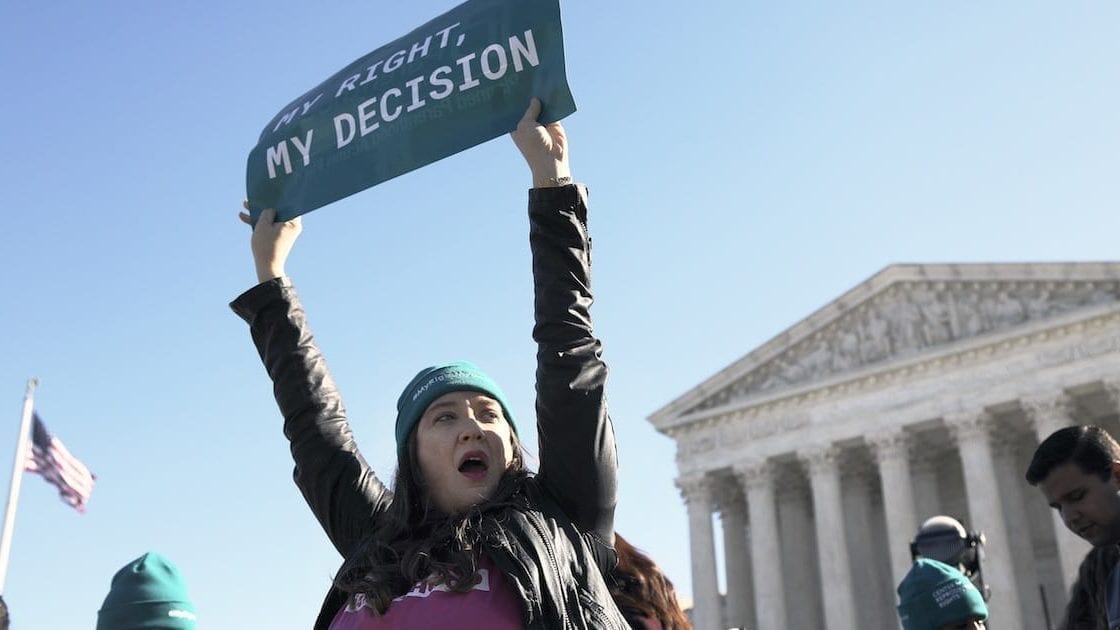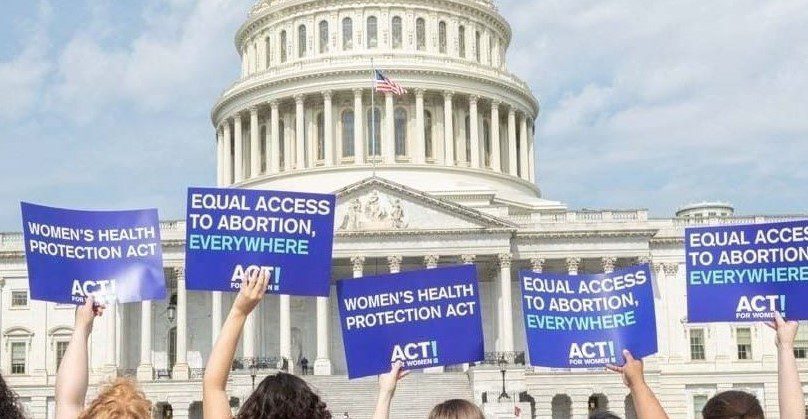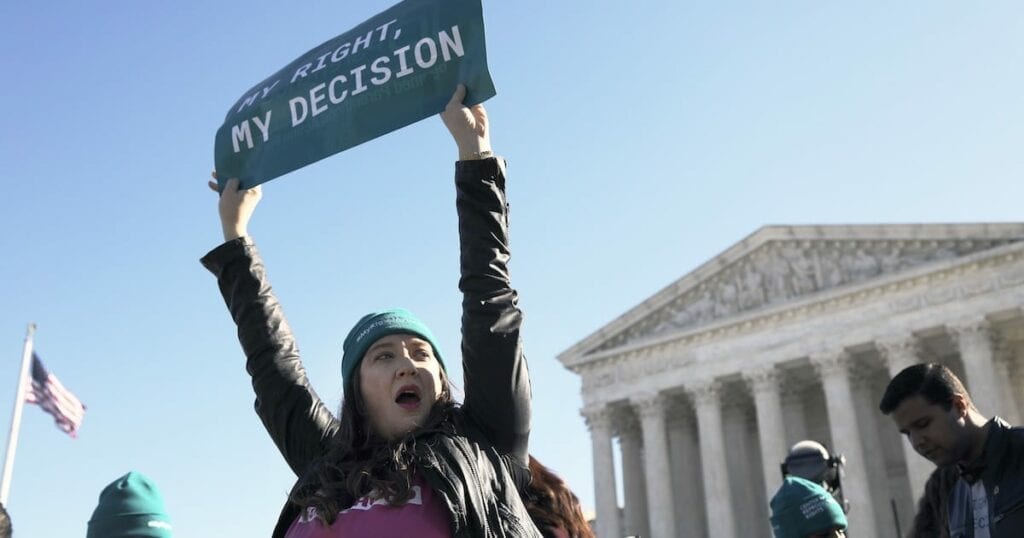Top 5 Reasons Why the Dobbs v. Jackson Women’s Health Case Matters
U.S. abortion rights at risk: The far-reaching harm if the Supreme Court takes away the constitutional right to abortion.

Before the end of its term in June, the U.S. Supreme Court will issue its ruling in Dobbs v. Jackson Women’s Health Organization, the most consequential abortion rights case in generations. In the case, in which the Center for Reproductive Rights is challenging a Mississippi abortion ban, the state of Mississippi has asked the Court to overturn Roe v. Wade and rule that there is no constitutional right to abortion.
A Supreme Court ruling in favor of Mississippi will cause grave harm to people seeking abortion care in the state and throughout the United States. A ruling to weaken or overturn Roe could take away a constitutional right that people have relied on for generations. It would also fundamentally undermine the rule of law, gender equality, and potentially, other constitutional rights, and lead to instability and uncertainty across the country.
Here are the five top reasons why Dobbs v. Jackson Women’s Health matters:
1. A ruling to dismantle the right to abortion would harm millions.
Read more about the case.
While this case involves a Mississippi abortion ban, a ruling upholding the ban would give the greenlight to anti-abortion lawmakers in other states looking to restrict or prohibit abortion. States are already gearing up: In 2021 alone, the Center tracked more than 400 restrictive anti-abortion measures introduced by states.
According to the Center’s “What if Roe fell?” tool, 24 states are poised to ban abortion if the Supreme Court weakens or overturns Roe. That would leave large swaths of the country—especially in the South and Midwest—without abortion access. Over 35 million women of reproductive age live in states likely to ban abortion—bans that, like other restrictions, would fall hardest on people who already face barriers to accessing health care due to systemic racism, implicit biases, and other forms of discrimination.
2. Decades of progress on gender equality could be undone.
Reliance on the right to abortion has been essential to advancing gender equality in the U.S. Access to abortion has enabled generations of women to pursue personal, educational, and employment opportunities and life goals and helped counter the long history of discrimination that has limited women’s legal, social, and economic progress. Taking away that right would turn back the clock on this incremental—but essential—progress and limit women’s ability to participate fully and equally in society.
3. The rule of law hangs in the balance.
The Supreme Court has affirmed the constitutional right to abortion for almost 50 years. And every argument Mississippi has made for overruling Roe has been considered and rejected by the Court before. Revoking that right today would endanger the rule of law, and may reduce the public’s confidence in the Supreme Court. The rule of law—where laws are applied equitably, there are fair processes to enforce them, and laws are subject to an independent judiciary—is crucial for a stable, orderly, and just society.
A ruling that dismantles constitutional protection for the right to abortion would also lead to instability and uncertainty across the country. As half the country moved to ban abortion, there would be chaos in the courts and significant harm for pregnant people and their families as they struggle to access the essential health care they need.
4. The Court could eliminate a constitutional right for the first time in history.
WHPA would protect abortion access nationwide.
If the Supreme Court overturns Roe and finds there is no right to abortion, it will mark a devastating milestone: the first time in our country’s history that the Court has taken away a constitutional right. Reaffirmed by the Court numerous times, the right to abortion has been fundamental to people’s lives for generations. Will the Court abandon its duty to protect our essential and long-established rights?
5. More constitutional rights are at stake.
Roe is not only about abortion—it’s also the basis for a range of other liberty rights recognized by the Supreme Court. Since Roe, the Court has repeatedly reaffirmed that the Constitution protects abortion as an essential liberty, which is tied to other liberty rights to make personal decisions about family, relationships, and bodily autonomy. Weakening or eliminating the right to abortion puts other rights protected by the 14th Amendment at risk—such as marriage equality, the right to engage in private sexual conduct, and the right to use contraception.
WHPA Would Protect Abortion Access Nationwide
The Women’s Health Protection Act (WHPA) is federal legislation that would establish a statutory right for health care professionals to provide, and a corresponding right for their patients to receive, abortion care—free from restrictions and bans. The bill was passed by the U.S. House in a historic vote in September 2021 but did not receive the 60 votes needed to overcome the Senate’s filibuster in February 2022. WHPA is supported by a majority of voters in the U.S. and the Center will continue to advocate for it to protect abortion rights across the country. Read more about WHPA here.
Read more:



